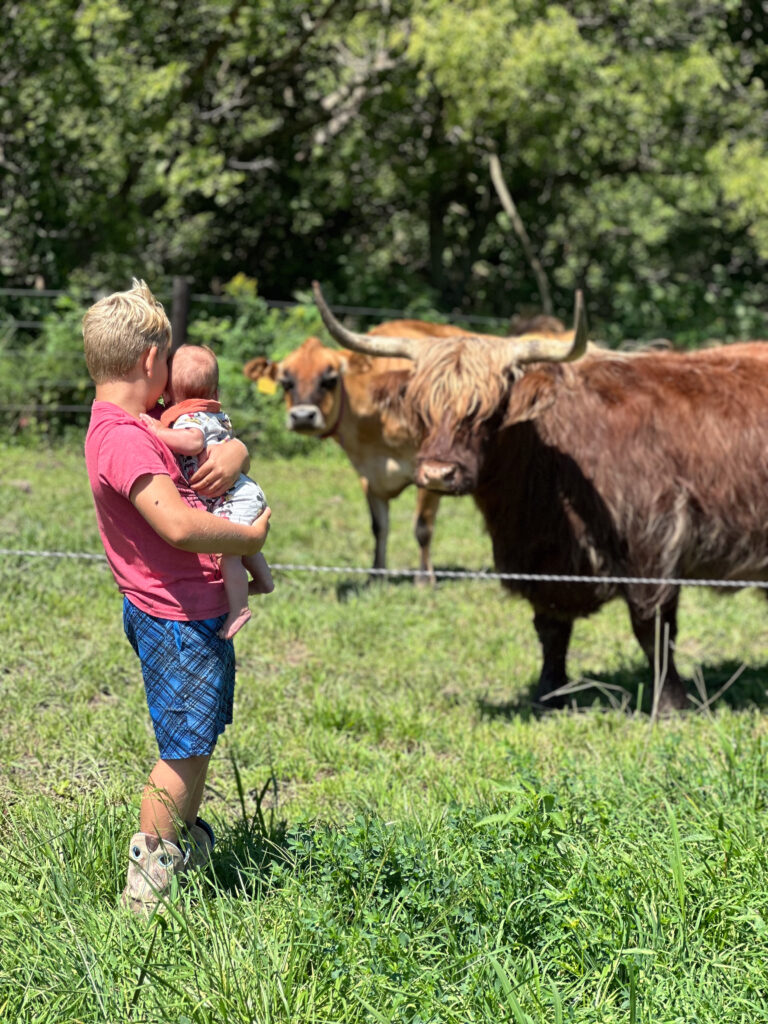Childhood chores were commonplace in the Mennonite culture of my childhood. There was the family cow to milk, the garden to weed, the weekly Saturday deep cleaning of the home, always dishes to wash and laundry to do. And although I alone didn’t carry the burden for checking these chores off the list, I was responsible for doing what I was asked to do, when I was asked to do it. Most childhood chores were done with a sibling or two to lighten the load and make the job more fun but there were those daily tasks that were assigned to each of us individually that became part of everyday life.
The chores of my childhood seemed to fall into two different categories. The ‘assigned chores’ and the ‘Big job’ chores. The daily assigned chores were the ones that we did without being told or asked to do. These chores were always the same and needed to be done daily or weekly. The ‘Big job’ chores where the type of workdays that happened a couple times a month or more often during the gardening or preserving seasons. These ‘Big job’ chores are the ones that were most disliked as a child but ironically enough these are the very days that hold some of my dearest memories. Most disliked because they seemed to pop up out of nowhere and disrupt the building of straw bale tunnels, salamander chasing and creek swimming that we had planned. And yet the memories that were made in those big workdays as we all weeded, shucked peas or butchered chickens together are near and dear to me. I’m sure that our childish skills of distracting each other from the job at hand made these big jobs take longer than necessary and likely frustrated our parents to no end. But in the end, now that we have all left home and all 9 of us have families of our own, those big ‘workdays’ when everyone worked together for the same goal are the ones that live on in my memories. It’s not so much the work that we did that I remember as it is the laughing and chatting, the weed throwing contests and the pig riding competitions, the giggle spells and the mud fights that live on in my memory.

9 of us siblings made quite a work force for my parents and I’m sure that we lightened to burden of the workload tremendously! But something more was happening during all these ordinary moments of childhood chores and big ‘workdays.’ More than lightening the workload for my parents we were given the gift of life skills. The skills to become fully functioning adults that are a blessing to those around them and asset to their community. My 5 sisters and I, although some of us enjoy it much more than others, are all very skilled in the kitchen and I’m thankful that my mom insisted we learn to cook for the family even when we made it clear that it wasn’t our natural interest. The list of childhood chores that are at the root of a life skill that I use daily could go on for an entire article of its own. More than the life skills that you might see me use daily like cooking, cleaning, or gardening I value the life skills that are more of a mental life skill. Skills like, time management, endurance, and responsibility. These skills have influenced much more than just my homemaking. These intangible skills have influenced my relationships, my spiritual life, and my thought life. Its these skills that have been the biggest corner stones upon which my adult life has been built.
The skill of time management begins early and is often enforced, not by a parent, but by a little tic-toc noise of a timer. I remember more than once as a child, being offered a reward if a certain chore was done in an allotted amount of time. That tiny tic-toc noise of mom’s kitchen timer was a very loud reminder of the passing time that kept me focused on completing my task.

I also the remember a few times when we were denied swimming on a hot summer afternoon because the weeding of the asparagus patch or the hilling of the corn was not done in time. The skill of time management happens when a child must learn to endure for a short period of time and discipline themselves to finish an unpleasant job to receive a reward. Beating the time set for you, and receiving your reward gives a bit of an adrenaline rush that is then remembered, and the next unpleasant job becomes easier as we instinctively remember that ‘good feeling’ of getting a job done and receiving our reward. Eventually, with enough practice and maturity that reward is the good feeling itself. Seeking and loving that feeling of accomplishment from a job well done is the very core of the character trait of ‘work ethic’.
No matter what childhood chores are available to your family, it doesn’t have to be milking a cow, mucking stalls or weeding the garden. The chores can be as simple as washing dishes, cooking a meal once or twice a week or sweeping the kitchen floor. No matter if you start when your child is 3 or 13, Implementing chores into their routine helps them develop all-important life skills, not only tangible life skills but also those intangible ones that are taking root and growing with every chore. It’s those intangible skills that make all the difference in adult hood.
Once we recognize the significant role that childhood chores play in creating successful adults, we are able to shift our focus from a performance-based focus to one of developing lifelong skills. These lifelong skills take time and practice to put down deep roots that will serve a child well. Life skills aren’t created with one job done well, they are created by stringing a whole list of childhood chores (and mistakes) together, with time management, responsibility, work ethic all strung together, making a beautiful gift that your child won’t fully comprehend he received until his adulthood. The end goal being not for our children to grow up and honor us for their childhood but to grow up to be successful and competent adults that bring glory and honor to their heavenly Father.
As an Amazon Associate I earn from qualifying purchases.
COPYRIGHT © 2025 RUTHANN ZIMMERMAN
Made with ♡ by Porter Homestead Designs